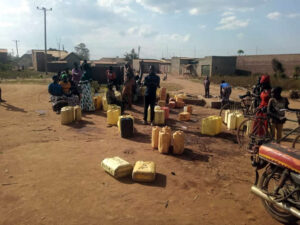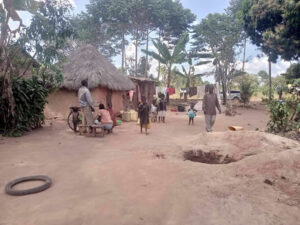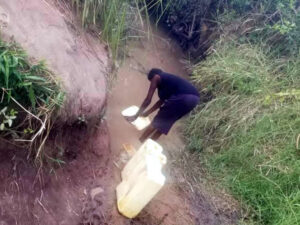Background and Needs Assessment:
The situation facing children in Uganda is multifaceted and often challenging, encompassing various aspects from health to education and socio-economic conditions.Youth and Children in Uganda are faced with a number of challenges some of which are outlined below. Yamba Initiative wants to address some of these issues in order to better the lives of many underprivileged young people in Uganda.

Child poverty hampers children’s development, educational outcomes, job prospects, health and behaviour, often resulting in the chronic intergenerational transmission of poverty. With close to 60% of the population below 18 years of age, and over 75% below the age of 35 years, children’s cognitive development represents Uganda’s greatest natural resource. Moreover, Uganda’s vision of becoming a middle-income country by 2040 remains highly contingent upon our collective ability to safeguard children’s right to contribute to national development (UNICEF: Situation Analysis 2019)
- Program Development:
Design programs that directly address these needs. This might include:
- Education Programs:Many children in Uganda face barriers to education due to poverty, distance from schools, and inadequate infrastructure.Schools often lack resources, qualified teachers, and proper curriculum, impacting the quality of education provided.Girls, especially in rural areas, face significant challenges in accessing and completing education due to cultural norms, early marriages, and limited resources.Yamba Initiative should find ways of enabling children get access to after-school programs, vocational training.
-
- Healthcare Initiatives:Malnutrition, preventable diseases, and limited access to healthcare services are prevalent among children.High rates of infant and child mortality due to diseases, inadequate healthcare facilities, and lack of access to clean water and sanitation are significant concerns.Yamba should Involve families and communities to create sustainable change.

- Healthcare Initiatives:Malnutrition, preventable diseases, and limited access to healthcare services are prevalent among children.High rates of infant and child mortality due to diseases, inadequate healthcare facilities, and lack of access to clean water and sanitation are significant concerns.Yamba should Involve families and communities to create sustainable change.
6.Partnerships and Collaboration:
- Collaborate with local NGOs, government agencies, schools, and community leaders to amplify your impact and ensure cultural sensitivity.
-
- Vision:Offering programs focused on empowering children with access to education, life skills, leadership training, and workshops on topics like hygiene, financial literacy, and entrepreneurship helping them become self-sufficient and contribute positively to their communities.Establish partnerships with businesses or other nonprofits for funding, expertise, or resources.Mission Statement:To work tirelessly to address the root causes of vulnerability among marginalized youth and children in Uganda, aiming to break the cycle of poverty, exploitation, and lack of opportunities with the ultimate goal of enabling these children to lead fulfilling lives, achieve their potential, and contribute positively to society.
- Goals and Objectives:
- Ensuring access to essential needs such as food, clean water, shelter, and healthcare.
- Offering quality education, vocational training, and skill development programs to empower children for a better future.
- Providing medical care, vaccinations, and health education to improve the overall health and well-being of children.
- Creating safe environments for children, protecting them from exploitation, abuse, and trafficking.
- Strengthening families and communities to provide a supportive environment for children, often through counseling, parenting classes, and community-building initiatives. Working with like minded local organizations with similar goals and objectives.
- Advocating for children’s rights and influencing policies at local, national, and international levels to improve the lives of vulnerable children.
- Empowering children to become self-sufficient, confident individuals who can contribute positively to society, while also preserving their dignity and cultural heritage.
- Sustainability and Long-Term Impact Creating sustainable programs that have a lasting impact on communities, aiming for self-sufficiency and resilience.

